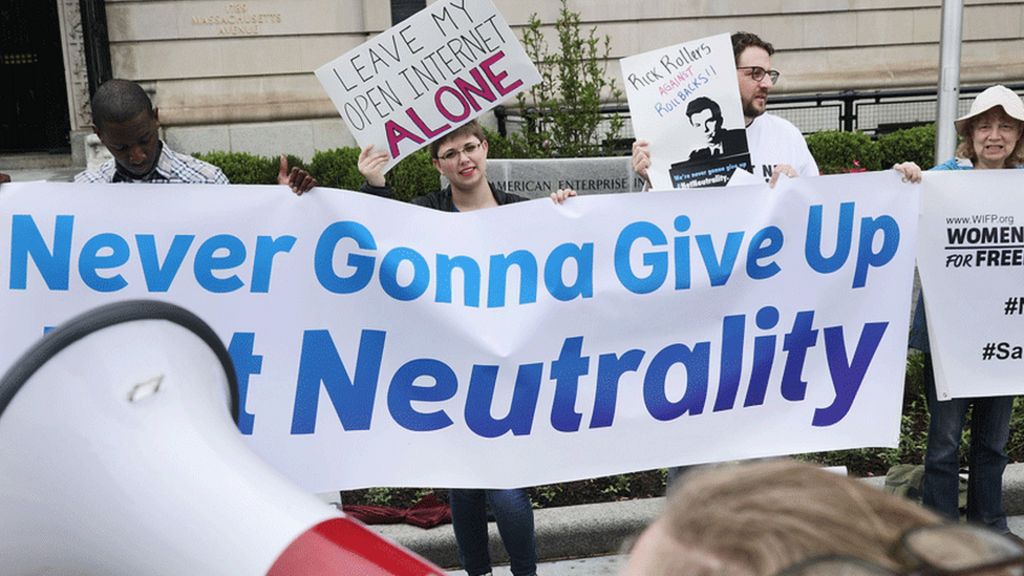Regulator Repeals US Net Neutrality Rules

 Image copyright
Getty Images
Image copyright
Getty Images
US regulators have rolled back the net neutrality rules enshrined in law under President Barack Obama.
The change is seen as a major victory for the telecoms industry but a blow to those who favour an internet that offers equal access to all.
It could pave the way for net providers to offer "fast lanes" - where only wealthy companies can afford the best connections to consumers.
Some 21 million comments were submitted in a public debate about the proposals.
In a statement, chairman Ajit Pai said the Federal Communications Commission's proposals would stop federal government "micro-managing the internet".
"For almost 20 years, the internet thrived under the light-touch regulatory approach established by President Clinton and a Republican congress," he said.
"This bipartisan framework led the private sector to invest $1.5tn [£1.1tn] building communications networks throughout the United States. And it gave us an internet economy that became the envy of the world."
The Obama-era changes, which followed a massive public campaign in favour of net neutrality, reclassified telecoms companies as "common carriers" - or neutral gateways to content, which could neither speed up or slow down content on its networks.
They also gave the FCC much more oversight and regulatory control over how they operated.
But Mr Pai described these changes, which took effect in 2015, as "heavy-handed, utility-style regulations".
"That decision was a mistake," he said.
"It has depressed investment in building and expanding broadband networks and deterred innovation."
Telecoms companies such as Comcast, Verizon and AT&T agree.
Broadband association US Telecom said: "Today's action will provide tremendous opportunity for American broadband consumers, no matter where they live.
"The removal of antiquated, restrictive regulations will pave the way for broadband network investment, expansion and upgrades."
But a range of other companies such as Netflix, Google and Amazon, say the FCC's proposals will make it easier for the telecoms companies to give priority to their own streaming video services or impede messaging tools such as Skype or WhatsApp.
The proposals will now be voted on at the next FCC meeting, on 14 December.
As the body has a Republican majority, they are expected to be approved and will probably take effect early next year although consumer groups have said they will challenge them in the courts.
From Chip War To Cloud War: The Next Frontier In Global Tech Competition
The global chip war, characterized by intense competition among nations and corporations for supremacy in semiconductor ... Read more
The High Stakes Of Tech Regulation: Security Risks And Market Dynamics
The influence of tech giants in the global economy continues to grow, raising crucial questions about how to balance sec... Read more
The Tyranny Of Instagram Interiors: Why It's Time To Break Free From Algorithm-Driven Aesthetics
Instagram has become a dominant force in shaping interior design trends, offering a seemingly endless stream of inspirat... Read more
The Data Crunch In AI: Strategies For Sustainability
Exploring solutions to the imminent exhaustion of internet data for AI training.As the artificial intelligence (AI) indu... Read more
Google Abandons Four-Year Effort To Remove Cookies From Chrome Browser
After four years of dedicated effort, Google has decided to abandon its plan to remove third-party cookies from its Chro... Read more
LinkedIn Embraces AI And Gamification To Drive User Engagement And Revenue
In an effort to tackle slowing revenue growth and enhance user engagement, LinkedIn is turning to artificial intelligenc... Read more

